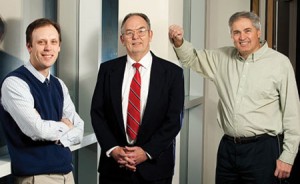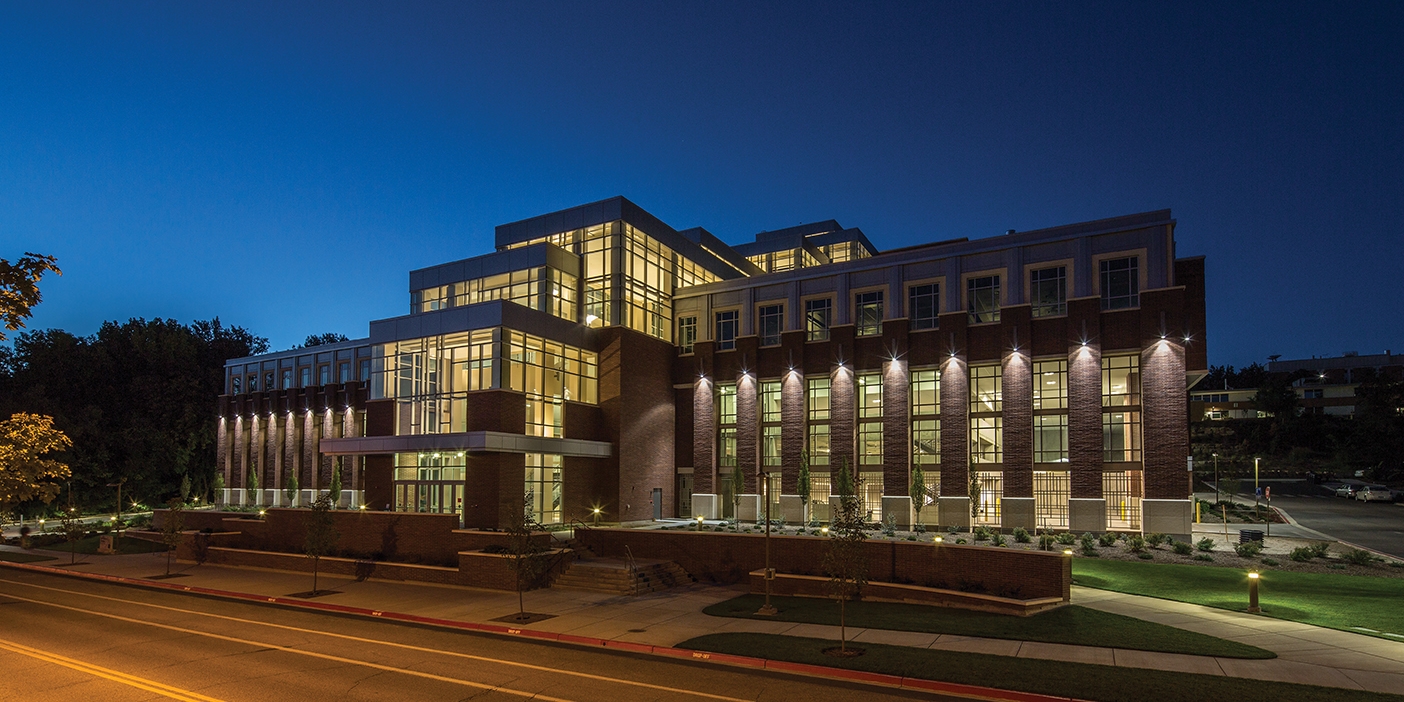Proceedings of the National Academy of Sciences published three separate studies authored or coauthored by BYU professors in one issue. Here’s the rundown:

From left to right: Neuroscientist Brock Kirwan, statistician Dennis Tolley, and Biochemist Barry Willardson were published in the same issue of Proceedings of the National Academy of Sciences.
Roommates in the Brain: Familiarity and Recollection
Ever get stumped trying to put a name to a familiar face? Previous theories state that the processes of recollection and familiarity take place in separate parts of the brain. But new research by BYU neuroscientist C. Brock Kirwan suggests that familiarity and recollection aren’t total strangers. His study shows that damage to the brain’s hippocampus disrupts both processes.
Kirwan, who teaches in the Psychology Department and the Neuroscience Center, is lead author on the study. Researchers from the University of California and the Department of Veterans Affairs appear as coauthors.
It’s Off to Work We Still Go
BYU statistics professor H. Dennis Tolley (BS ’70) crunched the numbers on proposed changes to federal health care and noticed something government forecasts overlook: with expanded access to health care, more people will stay in the workforce longer. As a result, the workforce will be larger and workers who extend their careers will have more time to develop their skills, potentially increasing the productivity of the U.S. economy. Additionally, the percentage of people drawing from Social Security and Medicare will decrease, prolonging the life of those programs.
Tolley coauthored the study with researchers from Duke University, the National Council on Spinal Cord Injury, and North Carolina State University.
G Protein: A Cell’s Phone
Our bodies’ cells rely on what are known as “G proteins” to relay information such as sights and smells. G proteins also help relay marching orders to organs like the heart and brain. When this signaling process is disturbed, problems can develop—several diseases disable G-protein networks or are caused by disrupted G-protein messaging. As a result, about half of pharmaceutical drugs target G-protein networks.
A new study coauthored by BYU biochemist Barry M. Willardson (BA ’84) and graduate student Nathan K. Itoga (BS ’08) details the surprising flexibility G proteins have when paired with certain binding partners. The findings will aid the development of drugs to counter diseases that disrupt G-protein signaling.
Willardson and Itoga participated at the request of researchers from the University of Rochester School of Medicine and Dentistry and the Institute for Research in Biomedicine in Barcelona, Spain.









